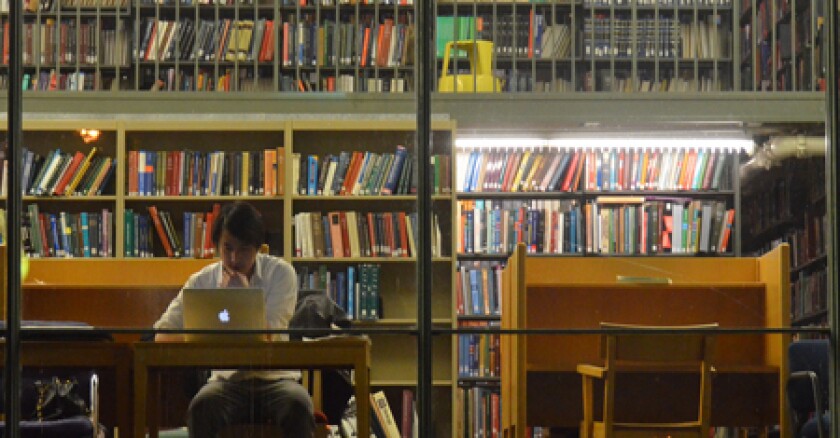This kind of disinformation is high on the list of concerns for election officials, and recent years have turned a spotlight on the dangers of both deliberate and accidental false election narratives. A collaboration between Poynter’s MediaWise and the American Library Association (ALA), however, is trying to equip residents with the digital media literacy to sort online fact from fiction.
Since March, a board of 12 ALA librarians has developing a toolkit to provide librarians with resources for offering media literacy programming. That programming could take whatever form suits an individual library best, whether that’s classes, email newsletters or even an escape room, said MediaWise Director Alex Mahadevan.
The digital toolkit — which is nearing beta launch at several libraries — will include sample lesson plans, downloadable videos and other support. Mahadevan said that by the election in November, he hopes to see trainings reach more than a million people in as many as 20,000 participating libraries.
It's a pressing and timely issue. In recent years, public faith in news outlets has declined, while public schools have become politically charged arenas for culture warfare. Against this backdrop, libraries are one of the last remaining widely trusted “third places” for people to find answers, Mahadevan said. That means visitors are likely to be more receptive to advice given there. Plus, many libraries already provide classes and programming, making it a natural fit to add media literacy training.
This initiative particularly aims to reach older adults, who may already come to libraries for help with technology, ranging from updating smartphones to opening email accounts. The toolkit is designed for that beginner level of technical familiarity. And this project intends to not just spread warnings about misinformation but to actively teach participants skills for fact checking.
“In this toolkit, we kind of have to start from the very beginning and talk to older adults and teach librarians how to teach older adults how to open a tab and how to create an effective keyword search,” Mahadevan said. “Because we've seen research showing that, now, if you just tell someone, 'Hey, if you hear something in the [political] debate last night, just Google it,’ it actually backfires and they’ll find more misinformation.”
Plus, new challenges have emerged: “This will be our first year where we're kind of teaching about generative AI in earnest,” Mahadevan said.
Important skills include reverse image searches as well as upstream reading, which means checking online content for indicators of credibility, such as the editorial policy of the publication and whether an author attached their name to an article. Participants will also learn about lateral reading, where they can use other tabs to search keywords and check sources, verifying the information they’re reading in the main tab.
There are some careful lines to tread when developing the training. MediaWise and the ALA want to make participants aware of the risk of deepfakes, without scaring them too much.
“My big worry this year is … people becoming so skeptical that they just throw everything out and they don't even bother to fact-check — they just don't believe anything that they see,” Mahadevan said.
Stanford Social Media Lab will be evaluating the program, to see how much it actually impacts participants’ behaviors. Mahadevan anticipates it will entail presenting participants with headlines and seeing whether and how they fact-check it, as well as whether they accurately identify the false information.















